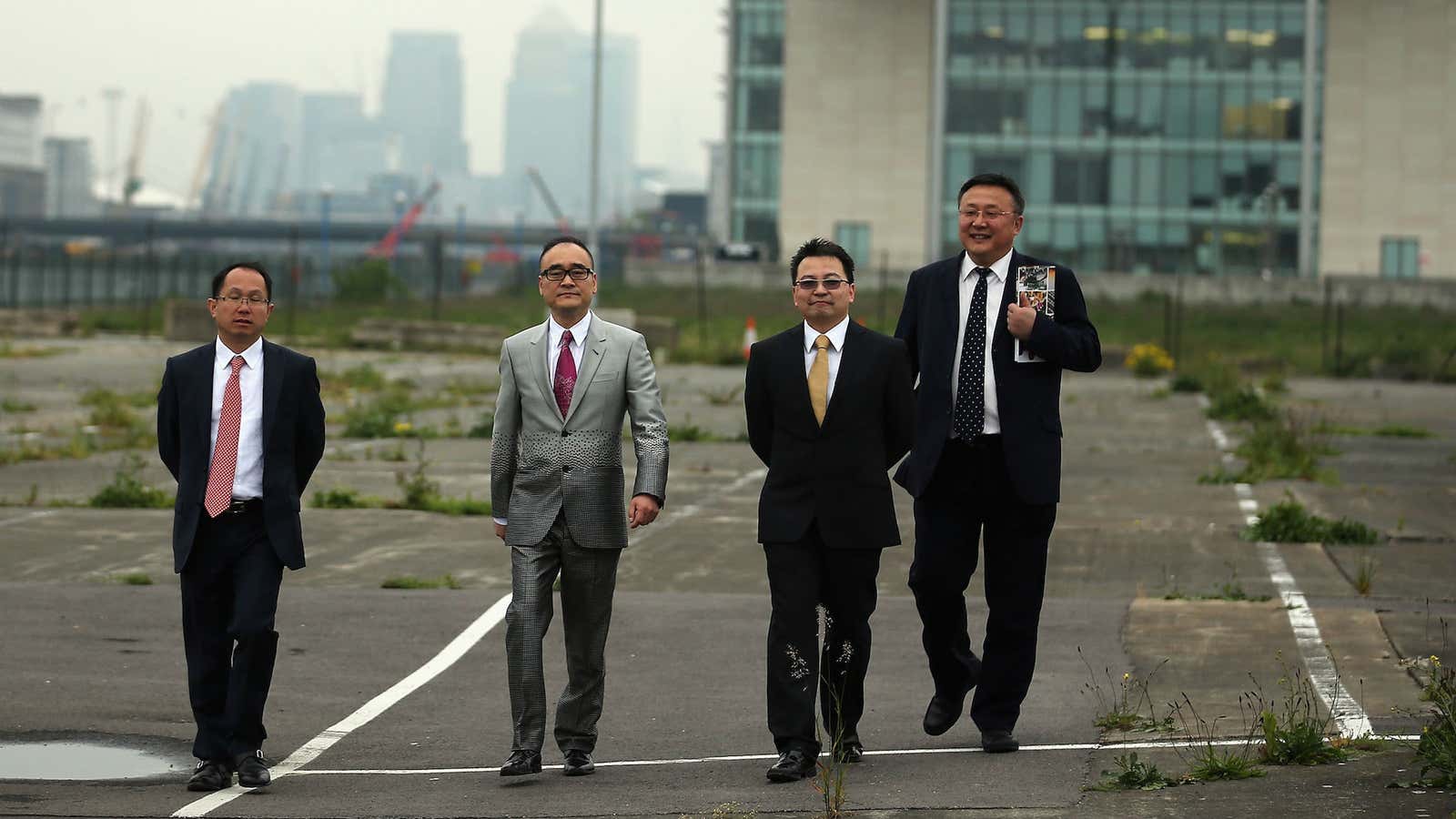A little-known Chinese property developer has signed a £1 billion deal ($1. 51 billion) to revamp London’s Royal Albert Dock, a patch of empty parking lots and a little used waterway in the east of the city. The 24-hour business center that will cater to Chinese and Asian firms should bring in £6 billion in investment, create 20,000 new jobs, and reinvigorate the dock that used to be Britain’s busiest, London officials say. The 14 hectare (35 acre) project should be completed in 8 to 10 years.
The man and firm behind the deal is Xu Weiping, chairman of Advanced Business Park Holdings (ABP), a former engineer, then government worker originally from Zhejiang province. Xu even had a career in journalism, according to a lengthy biography on ABP’s website. In an attempt to downplay his role in an often vilified industry in China, the profile also says Xu “never considers himself a real estate tycoon”.
Indeed, ABP’s obscurity is the curious part about the deal. ABP is best, perhaps only, known for building a 15-million square foot (1.4 million sq m) business center for technology companies on the outskirts of Beijing called Zhongguancun, meant to be the ”Silicon Valley of Beijing”. The project, ABP’s first, raised questions about how Xu obtained rights to build such a massive project in Beijing despite having no history as a developer. The Royal Albert Dock is the firm’s first overseas project.
One explanation for the firm’s quick ascension could be close ties with the government, which is not unusual for businessmen in China but could be problematic given that London has billed ABP as a private company. Xu and the firm have said previously that they have good rapport with local authorities and top officials. The Financial Times reports that before going into real estate, Xu appears to have worked at the same government agency (paywall) as Wang Qishan, a top policymaker who now heads China’s party discipline operations, one of the most powerful government positions. He began building Zhongguancun in Beijing in 2003, the same year that Wang became mayor of the city, the paper points out.
ABP’s corporate structure is also somewhat mysterious. It has described itself as a foreign-funded joint venture between Dauphin International Group (England), which is registered in the UK, and a Beijing district government. But Chinese media have questioned those credentials, the FT says. ABP’s website lists Xu as executive director of Dauphin International in 2000 and says a project in northeastern China would be funded by the group. ABP did not respond to a request for comment and a phone number for an address listed under a Dauphin International in the UK was disconnected.




